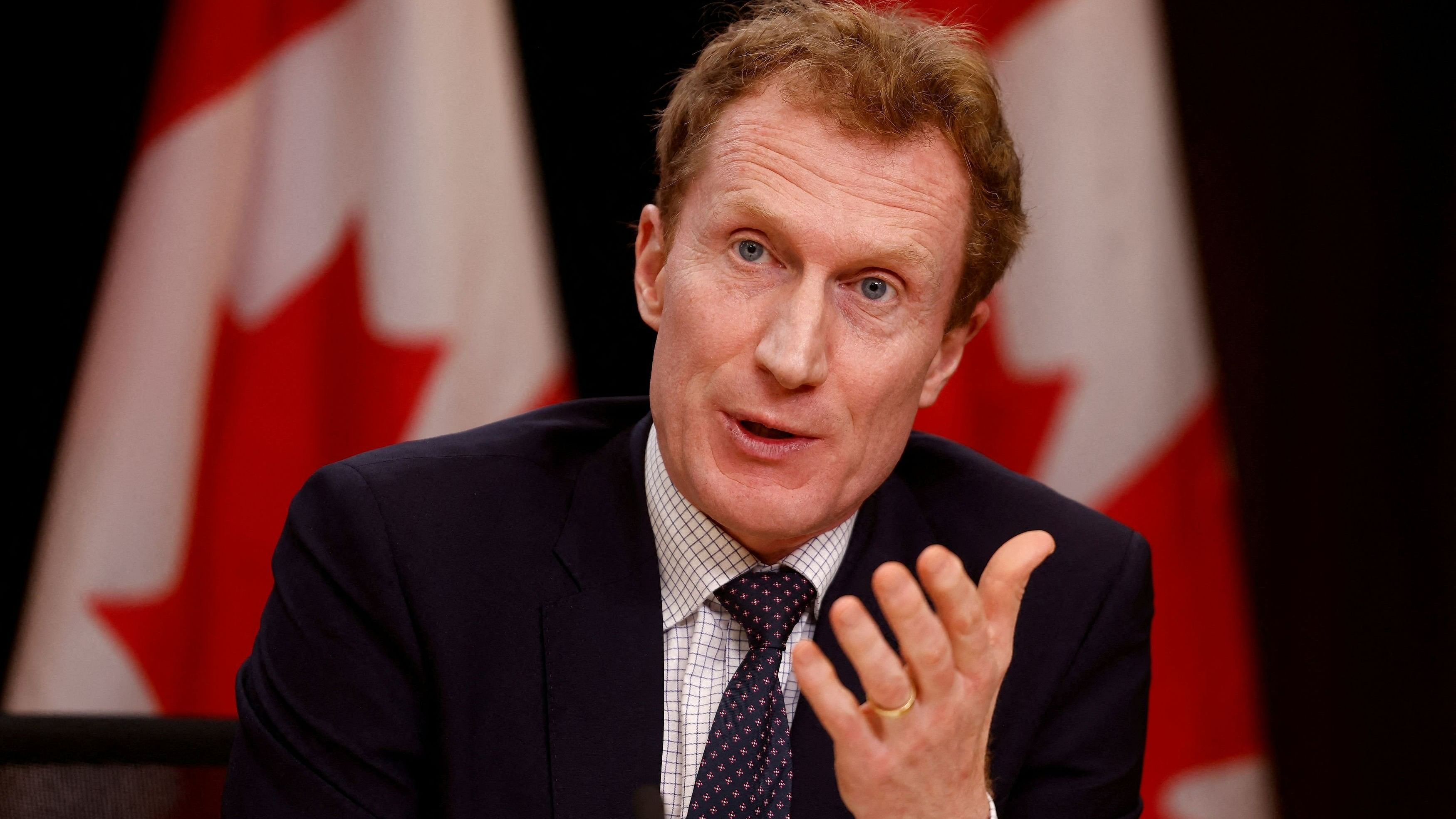
Canada's Minister of Immigration, Refugees and Citizenship Marc Miller
Credit: Reuters Photo
Toronto: The Canadian government should have acted sooner to stem the flow of temporary migration into the country, Immigration Minister Marc Miller told Reuters on Friday.
This week Prime Minister Justin Trudeau's government, facing low approval ratings and anger over a housing shortage and high cost of living, announced it is reducing both permanent and temporary immigration and shrinking Canada's population slightly for two years.
The flow of migration became "aggressive," Miller said. "It's safe to say that we own a part of that. It's also safe to say, particularly on the inflow of temporary residents, that we perhaps should have acted a little sooner."
Miller said he is conscious of the role he and government can play in the perception, reflected in polls, that Canada has too many immigrants.
"We have to be very careful in where we ascribe the challenge, the correlation, the causation. We don't want this dialogue to become weaponized," he said.
Under the plan, Canada expects more than 1 million people in the country on a temporary basis to leave of their own accord in coming years as their visas expire.
Canada will deport people who do not leave, Miller said.
"Temporary means temporary and permanent means permanent," he said. Canada said in 2021 it would provide immigration status to undocumented people, then walked back that promise, with Miller telling Reuters in August he would not pursue a broad program.
Miller said on Friday he still thinks it is important. He is pursuing a much narrower, sector-specific program. Canada's immigration levels plan designates 50 spots next year for such a program, although he said it is still being developed.
"There's a huge economic argument, a humanitarian argument for making that right," he said. Canada has been approving fewer visas and turning back some visa-holders, Reuters has found.
Miller said he has told visa officials to be more rigorous and restrictive in processing applications.
"Injecting a little more discipline into the system was important, and making sure that the visa process is a little more rigorous ... It means being more restrictive in the visas that we give to people and who we give them to."
Workforce worries
Some economists welcomed these immigration cuts, aimed at easing strain on housing and social services, but industry groups worry it could hurt Canada's labor force.
"Every chamber of commerce always wants more people, and I think largely we have listened to them," Miller said. But "as the federal government, we have a responsibility of looking at the economy and saying, 'Well, where has this gotten a little overheated?'"
Miller said he does worry about the healthcare workforce, and he hopes provinces will work with the federal government to fill needed spots. Canada's temporary foreign worker program has come under fire for the ways it makes vulnerable workers, tied by visas to their employers, subject to abuse. A United Nations representative called it a "breeding ground for contemporary forms of slavery."
Miller said he is considering permits that would allow workers to switch employers within a sector.
"There have been abuses," he said. "I think we do have a role to play federally in perhaps looking at more sectoral work permits ... This is work that is in progress."
The immigration levels plan is not rash, Miller said.
"We have been working on this for a long time ... Perhaps if we'd taken draconian measures last year, that would rightly have been characterized as reactive," he said. "But we wanted to get this right, particularly when it comes to permanent residency because of its value to Canadians."
A new three-year plan will be released next year.
"None of these plans are ever, for the three-year period, fixed in stone."